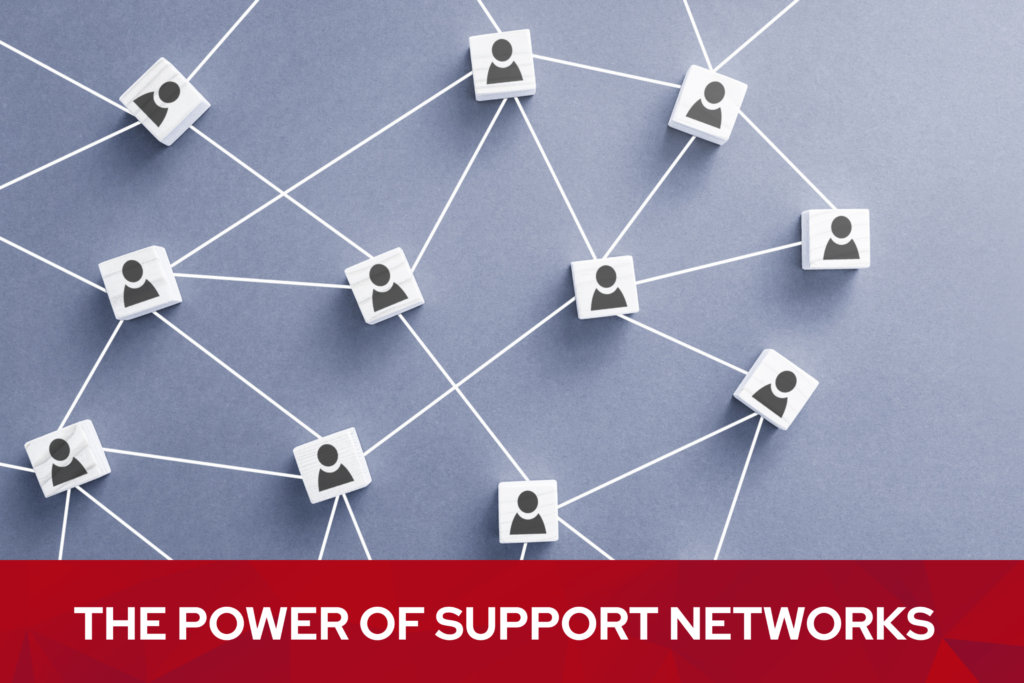Strategies, Resources, and Benefits for Clinical Laboratory Professionals
In the fast-paced and demanding field of clinical laboratory medicine, building a strong support network is crucial for the success and well-being of professionals. Support networks, comprising colleagues, mentors, and industry peers, offer a multitude of strategies and resources that are beneficial to professional growth, knowledge enhancement, and overall career satisfaction.
In a previous article, WSLH Proficiency Testing has explored making connections with peers through networking events, such as attending conferences and seminars. Certainly, these recurring annual events provide us the space to engage in conversations, share experiences, and exchange contact information to cultivate meaningful connections. However, sometimes our unique role, a transitional phase, or a new laboratory setting can make it challenging to find the support we need.
In this article, we broaden our focus on building a professional support network as a clinical laboratory professional. Through an exploration of effective strategies, we highlight valuable resources and outline the significant benefits creating a professional support network brings.

Online Learning Communities: Getting connected with others through sharing knowledge and expertise is a wonderful way to build a network of support for yourself as a laboratory professional. Join professional forums, social media groups, and other online platforms dedicated to clinical laboratory professionals. Professional associations such as ASCLS and AACC have discussion forums accessible to members through login-based access on their websites. On LinkedIn, professional associations such as ASCP, ASCLS, and ACCC have listed groups as well as industry media like the Medical Laboratory Observer and Lab Manager Magazine.
Webinars can also offer a setting where you can make connections with peers and industry experts. During a webinar, when someone is asking or sharing questions that are relevant to your laboratory’s needs, consider sending them a message if a chat feature is enabled. You can request that you can reach out to them about a similar issue you are having. Sometimes finding support outside of your workplace can provide you and your laboratory with the insight needed to create needed shifts in your practices and policies. It’s also wonderful to know that you have another person who is willing to talk through issues with you, and is just one email or call away.
Mentorship Programs: Mentor-mentee relationships can also be another beneficial dimension of your overall professional support network. Mentorship relationships help professionals gain insights, receive career advice, reduce workplace stress, and expand professional networks. There are professional associations that also have mentorship programs that create an excellent structure for mentor/mentee relationships to form. For example, when you apply with the ASCP Mentorship Program or ASCLS Mentorship Program, you gain access to their Mentorship Directory based on specific skills and experience. From there, you can request meetings to explore a mentorship relationship with potential mentors/mentees.
Workplace Engagement: Getting to know your team better is an important, often overlooked practice in building a support network to reduce burnout and maintain staff engagement. According to a recent article in Forbes, organizations have cited employee experience and mental health as the difference makers in improving engagement, retention, and productivity. While mental health comes with limitations with respect to worker privacy, laboratory managers can ensure steps are taken to improve employee well-being.
While it is not crucial to be best friends with all of our coworkers, having friendships and fostering social connection in your work life is one key factor to overall employee well-being. Forming engagement committees at work to foster social connection can be beneficial to improving social well-being, a key aspect of employee well-being overall. As a division of the Wisconsin State Lab of Hygiene, WSLH Proficiency Testing participates in our laboratory’s engagement committee, hosting weekly and monthly board game meet-ups, annual picnics, and sporting event outings to name a few.
Conclusion
The challenges of the clinical laboratory profession can be overwhelming. Building a support network is an invaluable investment for clinical laboratory professionals. As clinical laboratory professionals navigate their careers, a strong support network becomes an essential pillar of success, leading to personal fulfillment and the advancement of the field as a whole.
A support network facilitates knowledge sharing, emotional support, career advancement, collaboration, and professional development. Colleagues and mentors can provide valuable advice and share experiences to help navigate professional challenges. By adopting effective strategies, leveraging available resources, and actively engaging with colleagues, mentors, and industry peers, professionals can foster collaboration, inspires new ideas, and drives professional growth to effectively meet and exceed organizational goals.

